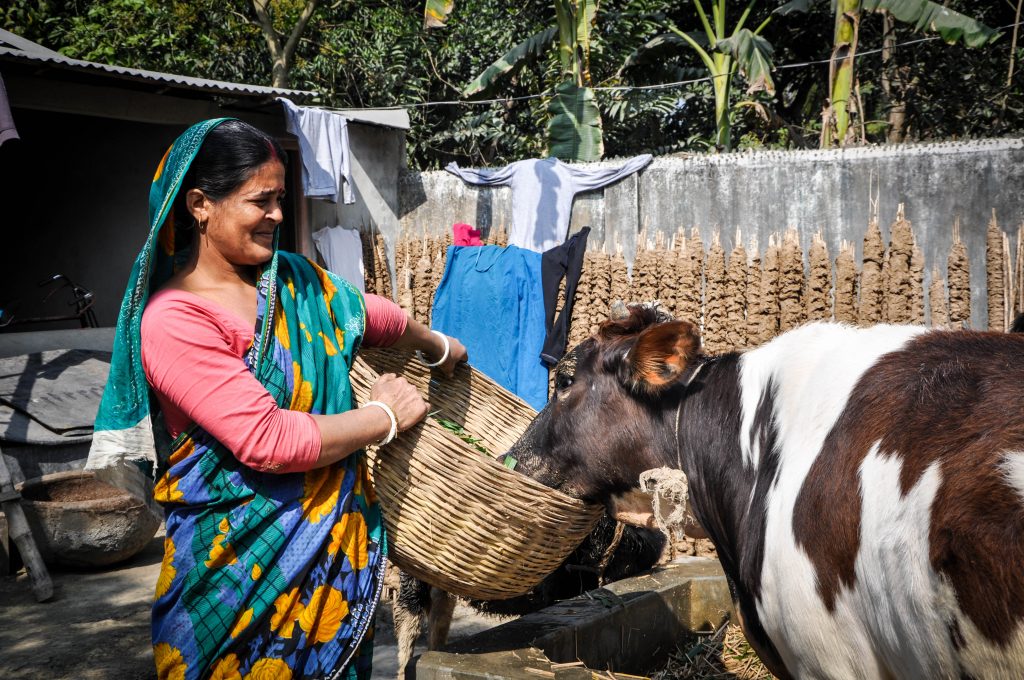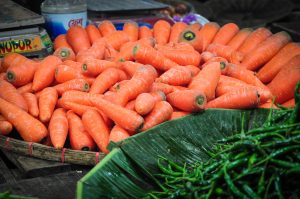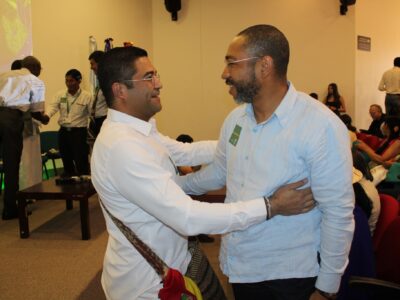
As an agricultural development professional (and someone who eats regularly), I’m well aware that sustained, quality nutrition is a foundation for human development and productivity. I’m known for baking healthful cookies to share with coworkers, but I power my way through work with lots of fruit and vegetables, too. Most of ACDI/VOCA’s market system projects target populations with nutritional deficiencies, though improved nutrition typically isn’t a project’s main objective. To address this need, and to position communities for sustained development, we take a nutrition-sensitive approach, integrating nutrition into our market systems workshops and lessons.
Of course, improving nutrition isn’t a one-shot effort, like facilitating linkages that increase market presence. As a baseball fan, I’d sure love a Field of Dreams-style “if you grow it/market it, they will eat it” outcome, but, alas… Households face multiple financial needs, and may be more inclined to sell vegetables and milk than eat them; or spend farm income on other competing priorities. Women, who are often responsible for buying and preparing food, may have little or no control over family income. Households may not understand and value a nutritious diet, especially for children and pregnant women.
Thus, we pursue the three main Agriculture to nutrition pathways: production, income generation, and women’s economic empowerment. On a recent trip, I was inspired firsthand how well this multi-faceted approach is working in Bangladesh. The project improves livestock productivity to boost income from sales, and increases the consumption of nutritious, diverse diets such as livestock products.

This multi-faceted approach requires a thoughtful mix of actions by us. We train entrepreneurs who provide artificial insemination services to train the producers who are their customers, and we encourage them to add feed and animal health services to their offerings. This broadening of services provides producers (80% women!) access to improved genetic stock, quality feed, and health services that increase milk volume and livestock growth rates. Since the entrepreneurs are already trusted by the communities they serve, the new services can be delivered efficiently, and with higher rates of adoption of improved feed and health services.
 At the same time, we’re training entrepreneurs and volunteer health workers from local NGOs to educate households on topics relevant to the market, the farm, and the home: hygienic handling of livestock and livestock products, safely processing milk and meat for storage, consumption and sale, milk and meat requirements for a healthy family, and budgeting their increased income to help them buy diverse foods.
At the same time, we’re training entrepreneurs and volunteer health workers from local NGOs to educate households on topics relevant to the market, the farm, and the home: hygienic handling of livestock and livestock products, safely processing milk and meat for storage, consumption and sale, milk and meat requirements for a healthy family, and budgeting their increased income to help them buy diverse foods.
The entrepreneurs and health workers train men and women, and ensure they know how critical diverse foods are for children’s development, starting from pregnancy. This encourages appropriate allocation of household production and income for animal protein, and sufficient distribution of these foods among family members.
Through this approach we’ve helped farmers raise milk output (to consume and sell) and get livestock to gain market weight faster. In 2016, the project’s first year, we reached over 2,650 individuals with productivity training, fostered the development of 180 entrepreneurs, trained 225 volunteer health workers, and increased dairy and red meat consumption among 44% of households. As we continue our work, we aim to further increase reach and impact through the coordinated pursuit of multiple pathways to nutrition. And, of course, I’ll keep balancing my cookies with carrots. Given the success of our multi-pathway approach, maybe I should integrate, too, and make carrot-cake cookies?
Comments







